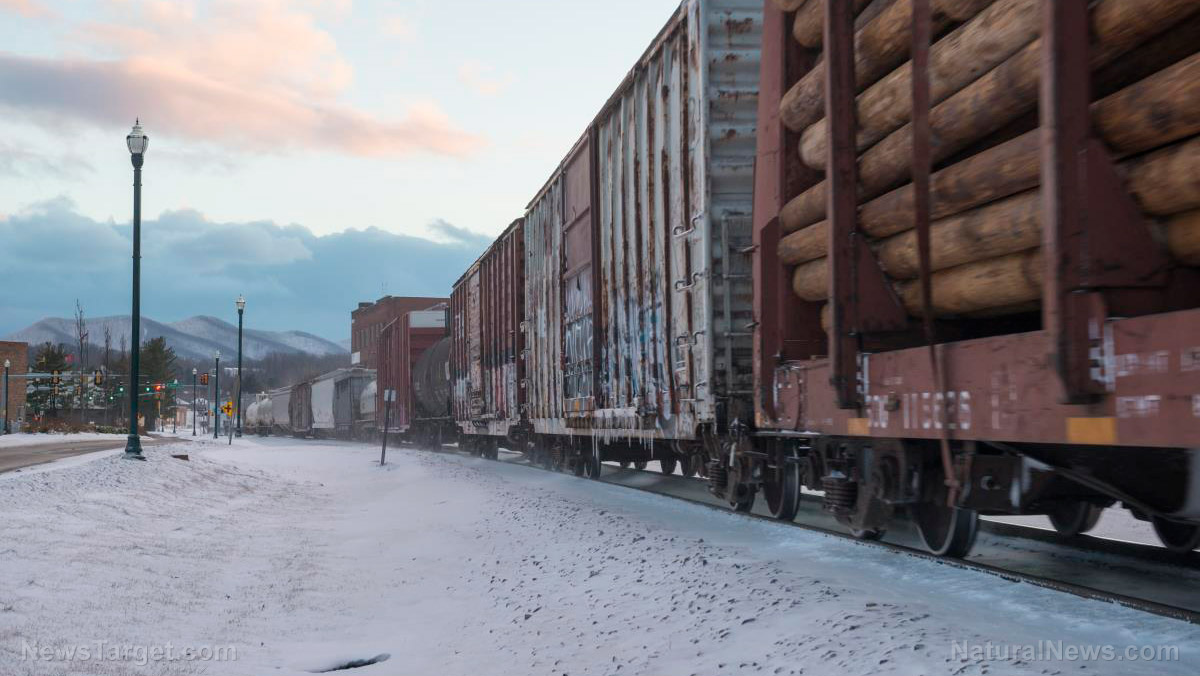A quarter of America could experience LONG BLACKOUTS this winter due to energy supply problems
11/21/2022 / By Arsenio Toledo

Large parts of North America could face long blackouts and other energy emergencies this winter as supplies of natural gas and coal begin to tighten.
According to the latest seasonal assessment of the North American Electric Reliability Council (NERC), a large portion of the North American [bulk-power system] is “at risk of insufficient electricity supplies during peak winter conditions.”
The regional grids with the largest risk of experiencing supply shortfalls this winter are in Texas, New England, the Carolinas and the central system stretching from the Great Lakes region down to Louisiana.
The NERC’s report noted that supply shortfalls, higher peak-demand projections, weaknesses in natural gas infrastructure and inadequate weatherization upgrades for generators are contributing to the heightened risk of power outages.
The risk would be further worsened by severe weather putting stress on these already weakened grids by causing demand for electricity to soar while supplies of energy coming from natural gas, coal and backup fuels like oil remain low. (Related: In the middle of a global energy crisis, Joe Biden promises to SHUT DOWN COAL PLANTS all across America.)
“The trend is we see more areas at risk, we see more retirements of critical generation, fuel challenges and we are doing everything we can,” said NERC Director of Reliability Assessment John Moura. “These challenges don’t kind of appear out of nowhere.”
Electricity bills to go up in winter
NERC’s warning for the coming winter notes that around a quarter of American households will also see their already high utility bills soar even higher this winter as demand for power shoots up.
“As the demand for electricity risks outpacing the available supply during peak winter conditions, consumers face an inconceivable, but real threat of rolling blackouts,” noted National Rural Electric Cooperative Association President Jim Matheson. “It doesn’t have to be this way. But absent a shift in state and federal energy policy, this is a reality we will face for years to come.”
The average household is expected to pay at least 47 percent more for electricity compared to last winter at a time when at least 20 million American households are already behind on their utility bills.
The tightest power supplies are expected to be in the central United States. The grid in this region is managed by the Midcontinent Independent System Operator. The risks in this region stem from the large number of power generators that shut down last winter and the Gulf Coast power plants that have not received adequate weatherization upgrades for potential cold snaps.
The next most at-risk of blackouts is the New England region, managed by ISO New England Inc, consisting of six states – Connecticut, Maine, Massachusetts, New Hampshire, Rhode Island and Vermont. The risks in this region come from inadequate natural gas pipeline infrastructure straining already-short gas supplies.
“There is a very real possibility that New England could be facing a dire set of consequences this winter,” said James Daly, a commissioner for the Federal Energy Regulatory Commission.
Learn more about the possibility of blackouts both in the U.S. and around the world at PowerGrid.news.
Watch this clip from InfoWars discussing how California is responding to the possibility of blackouts by bringing back lockdowns.
This video is from the InfoWars channel on Brighteon.com.
More related stories:
Germany prepares for “emergency cash deliveries” ahead of anticipated dark winter energy blackout.
Sources include:
Submit a correction >>
Tagged Under:
blackouts, chaos, collapse, electricity, electricity bills, electricity costs, energy costs, energy crisis, energy supply, inflation, panic, power, power grid, power outages, rationing, scarcity, supply chain, utility bills, weather, winter
This article may contain statements that reflect the opinion of the author
RECENT NEWS & ARTICLES
SupplyChainWarning.com is a fact-based public education website published by SupplyChainWarning.com Features, LLC.
All content copyright © 2021 by SupplyChainWarning.com Features, LLC.
Contact Us with Tips or Corrections
All trademarks, registered trademarks and servicemarks mentioned on this site are the property of their respective owners.



















